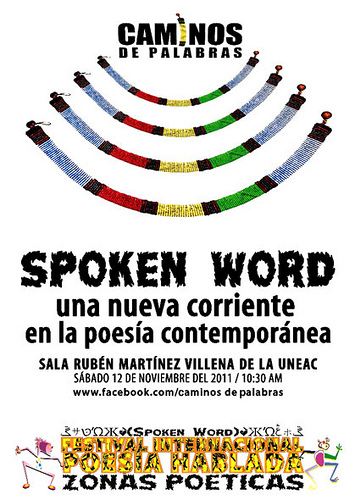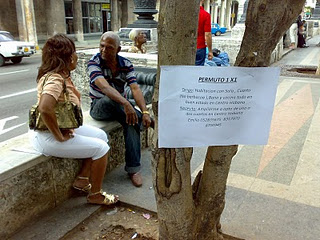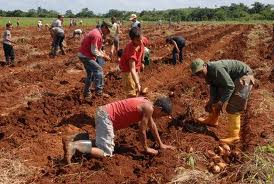 Today, December 3rd, we celebrate the Day of the Doctor in my world.
Today, December 3rd, we celebrate the Day of the Doctor in my world.
I have a doctor friend, with twenty-five years of experience, specializing in psychiatry, with good results, according to the acknowledgement of her patients, which is what really counts, who this year will be in her house baking cakes to be able to survive, while in her ancient place of employment, a polyclinic in Central Havana, they will hand out flowers and make speeches, with out taking into account that of the five psychiatrists who work there, only one of whom kept their job, while the other four, including my friend, were let go.
My friend is still young, not yet fifty years old, and has vast experience in her field, is divorced and has two children to take care of who are still studying. It is inconceivable that a doctor’s knowledge and experience would be wasted in this way. I understand that if this polyclinic had too many psychiatrists, something I doubt as this is an overpopulated city in which people do not enjoy the best living conditions, they should have had the others sent to other health centers where they could have used them. The sick who come in search of medical help almost always have to be attended to by inexperienced foreign students, who in some case cannot communicate very well with them, because they do not speak our language correctly. In general, this is not well received by those who come seeking medical attention, when our government shows off by sending so many doctors on foreign missions.
Is it that, since people here the do not have life insurance (it doesn’t exist), they come to practice on us as if we were guinea pigs? What’s certain is that already this is causing discomfort among people; we like to be well served and to be in the presence of an experienced doctor, from whom the students next to them can gain experience, rather than practice on the sick.
Nevertheless, my congratulations to all these hardworking Cuban doctors who take the bus (guagua in “good Cuban”) or bicycle to their hospital or polyclinic, who have shifts too often, who work with many difficult materials and who even so are kind and professional with the patients (as they should be), receiving a lower salary than an employee at Aurora (a business that sweeps the streets) or a fumigator. To all of them, my deepest respect.
Translated by: Meg Anderson
December 3 2011



